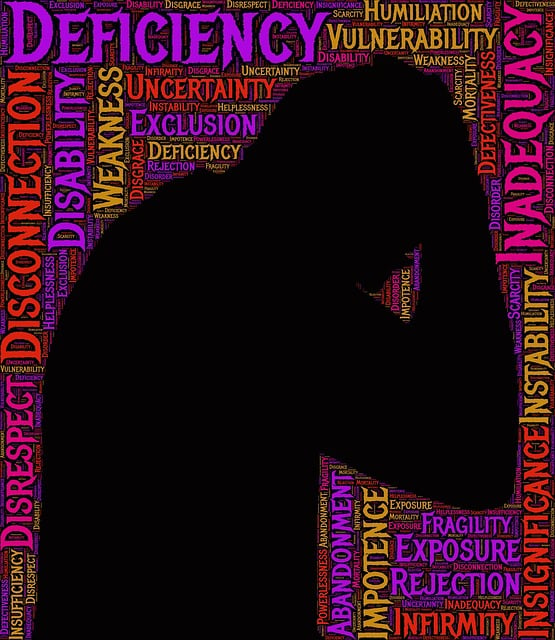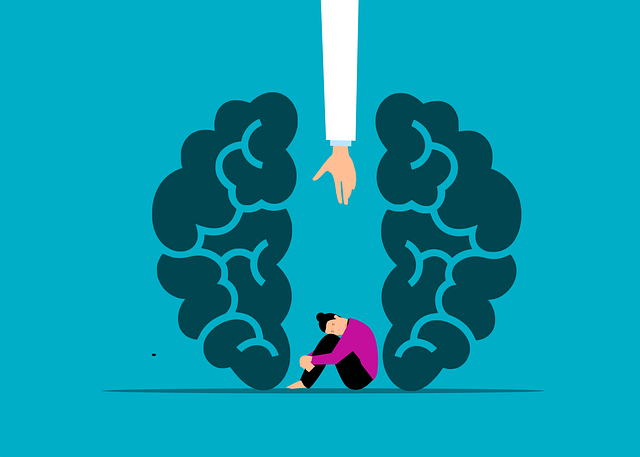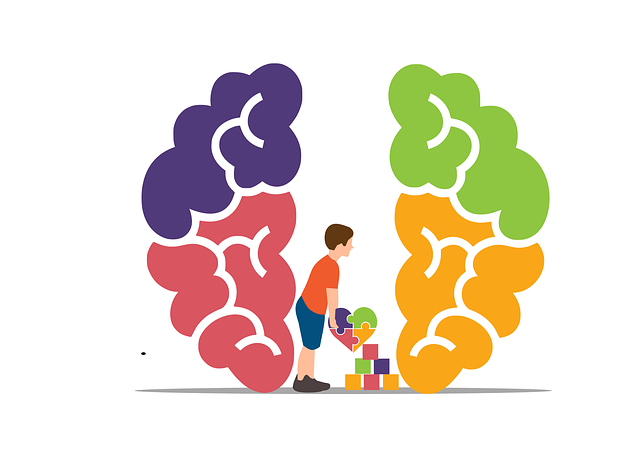Emotion regulation, a key aspect of mental wellness, empowers individuals to cope with life's challenges through understanding and managing emotional responses. Greenwood Village Relationship Issues Therapy offers a specialized approach, focusing on self-awareness and mindfulness techniques to address relationship conflicts rooted in unprocessed emotions. By keeping mood journals, identifying triggers, and incorporating daily practices like breathing exercises and structured self-care routines, individuals gain control over their emotional reactions. This improved emotional management leads to better communication, reduced conflicts, and enhanced relationships, both personally and professionally, ultimately fostering a more balanced and fulfilling life.
Emotion regulation is a vital skill, especially in today’s fast-paced world. This article explores techniques to help individuals gain control over their emotions, leading to improved well-being and healthier relationships. We delve into the concept of emotion regulation, offering insights from Greenwood Village Relationship Issues Therapy, which focuses on fostering emotionally healthy connections. By understanding triggers and implementing daily practice tools, one can transform their emotional responses, enhancing overall life satisfaction.
- Understanding Emotion Regulation: Unraveling the Concept
- Greenwood Village Relationship Issues Therapy: An Approach to Emotionally Healthy Connections
- Identifying Triggers: Recognizing Patterns in Emotional Responses
- Techniques for Daily Practice: Tools to Foster Self-Control
- The Impact of Consistent Practice: Transforming Relationships and Well-Being
Understanding Emotion Regulation: Unraveling the Concept

Emotion regulation is a crucial aspect of mental wellness, enabling individuals to navigate life’s challenges with resilience and adaptability. At its core, it involves understanding and managing one’s emotional responses in various situations, whether it’s a sudden surge of anger or an overwhelming sense of sadness. By learning effective emotion regulation techniques, individuals can foster emotional well-being promotion and enhance their overall quality of life, as advocated by therapy centers in Greenwood Village.
This concept transcends mere suppression of emotions; instead, it empowers people to recognize, accept, and constructively channel their feelings. Through various methods such as cognitive reappraisal, acceptance and mindfulness, individuals can develop a healthier relationship with their emotions. These techniques, often integrated into mental wellness coaching programs and public awareness campaigns development, offer practical tools for managing stress, anxiety, and relationship issues therapy, ultimately contributing to a more balanced and fulfilling life.
Greenwood Village Relationship Issues Therapy: An Approach to Emotionally Healthy Connections

Greenwood Village Relationship Issues Therapy offers a unique and effective approach to fostering emotionally healthy connections. This therapeutic method recognizes that many relationship challenges stem from unaddressed emotional issues, which can be both complex and deeply personal. By focusing on individual emotions and their impact on relationships, this therapy provides individuals with valuable tools for self-awareness and understanding.
Through various techniques, including mindfulness meditation, clients learn to recognize and manage their emotions, breaking down the barriers that often lead to relationship conflicts. Mental illness stigma reduction efforts are also integrated into the process, creating a safe space for honest exploration. By adopting these practices, individuals can find relief from anxiety and other mental health concerns, fostering healthier dynamics in their personal relationships.
Identifying Triggers: Recognizing Patterns in Emotional Responses

Understanding emotional triggers is a pivotal step in learning to regulate one’s emotions effectively. The first layer of this process involves recognizing patterns in your emotional responses. Every individual has unique triggers that set off specific emotional reactions; these could be certain situations, people, or even thoughts. For instance, someone struggling with anxiety might realize that public speaking events consistently evoke feelings of dread and panic. In Greenwood Village Relationship Issues Therapy, therapists often help clients identify these patterns by encouraging them to keep mood journals, noting down triggers and corresponding emotions.
By meticulously observing their emotional landscape, individuals can start to detect the subtle signs that signal an impending emotional storm. This awareness becomes a powerful tool in managing and redirecting these responses. Public Awareness Campaigns Development and Mental Wellness Podcast Series Production can further enhance this process by providing accessible resources and support, encouraging open conversations about emotions, and offering practical strategies for crisis intervention guidance.
Techniques for Daily Practice: Tools to Foster Self-Control

Emotion regulation techniques are essential tools for navigating Greenwood Village Relationship Issues Therapy. Daily practice plays a crucial role in fostering self-control and managing emotions effectively. One effective method is incorporating mindfulness exercises into one’s routine, allowing individuals to stay present and aware of their feelings. Simple practices like deep breathing, meditation, or even mindful walking can help calm the mind and reduce impulsive reactions.
Additionally, developing a structured Self-Care Routine Development for Better Mental Health is invaluable. This includes engaging in regular physical activity, maintaining a balanced diet, and allocating time for hobbies or activities that bring joy. Such self-care practices not only promote overall well-being but also enhance an individual’s ability to handle emotional challenges, as supported by the concept of Mental Health Policy Analysis and Advocacy. Through consistent dedication to these techniques, individuals can improve their Self-Awareness Exercises, enabling them to recognize and manage their emotions more effectively.
The Impact of Consistent Practice: Transforming Relationships and Well-Being

The consistent practice of emotion regulation techniques can profoundly transform both relationships and overall well-being. By learning to manage emotional responses, individuals can improve their interactions with others, fostering healthier connections. This is particularly evident in Greenwood Village Relationship Issues Therapy, where clients often report enhanced communication and reduced conflicts after integrating these skills.
Emotion regulation isn’t just about individual benefit; it ripples outward into social spheres. Improved emotional control leads to better conflict resolution techniques, enhancing personal relationships and even workplace dynamics. Social Skills Training and Stress Management become more accessible when individuals can regulate their emotions, making them effective tools for promoting mental well-being and fostering positive interactions within communities.
Emotion regulation is a powerful tool for enhancing relationships and overall well-being, as demonstrated by Greenwood Village Relationship Issues Therapy. By understanding emotional responses, identifying triggers, and adopting practical techniques, individuals can foster self-control and transform their lives. Consistent practice of these strategies not only strengthens connections but also leads to profound personal growth and improved mental health.














